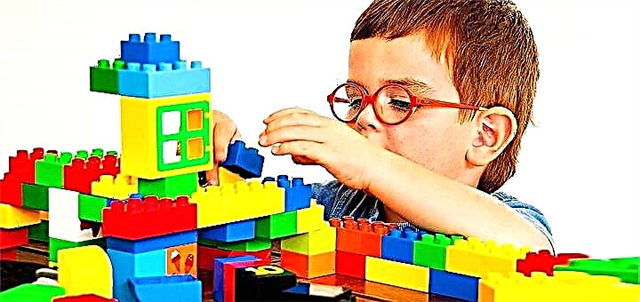After giving birth, women literally count the hours until they are discharged from the hospital and dream of being at home as soon as possible. And this is absolutely understandable - at home, relatives and friends, whom we have not seen for so long, are waiting for us. A shower, a bed and slippers are waiting for us. But at home not only rest awaits us, but also many new tasks and responsibilities.
Cleaning, washing, cooking, ironing - and this is not the whole list of daily tasks. And it takes so much strength to care for a baby! And if there are also older children in the house ?! In fact, there is no need to try to cover everything: therefore, in the first days after returning from the hospital, it is very important for the mother and baby to adjust the situation for themselves and get more rest.

So, if you and your baby are all right from the hospital, you will be discharged on 3-4 days. During this time, relatives have probably already managed to do a general cleaning, remove excess carpets, furniture and strong-smelling house plants from the room where the baby will now live, installed a crib and made room for a stroller on the balcony.
The first day at home after the maternity hospital catches up with a real panic for newly minted mothers, especially if it was their first birth. What to do after the hospital, what do you need to know how to properly care for a newborn, what does the child need after the hospital and how to plan your own schedule? All these questions simply fall on young moms. But inexperience is not a problem. We will tell you what mom needs after giving birth and how the first days of the baby after the hospital should go.
A few days before discharge
You need to take care of your arrival home even before discharge. Make a list of the purchases and things your husband should do before you arrive. Many women believe that their husband will do whatever is necessary even without additional advice. But this is only obvious to you that any nursing mother needs black tea and milk, cottage cheese and boiled turkey, and any child needs wet cleaning in the room and a bed ... But even the most caring man can get confused, forget something, or confuse something.
Your first business after discharge
After returning home, I really want to lie down and do nothing. Of course, you need to sleep at night and during the day - fortunately, and the newborn does this often and in large quantities, but there are some things that cannot be avoided:
- Call the children's clinic and inform about the new tenant. You should now see a doctor. Until the doctor arrives, find slippers for him (or buy disposable shoe covers), a notebook or a notebook where you will enter information about child care. The pediatrician will examine the baby, give some recommendations on some procedures and acquaint with the main rules of care;
- We need to take care of reallocating responsibilities for the next few days. After discharge from the hospital, the mother needs to rest more. But what about cooking, washing and cleaning? Your loved ones will take over these responsibilities. Give your husband cleaning and grocery shopping. Leave your mother cooking (let your mother prepare a large pot of soup and cutlets - so that you don't think about cooking for at least a couple of days) and washing;
- It is important to establish GW. For successful lactation, you need to eat well, drink plenty of fluids, be less nervous, get more rest and properly apply the baby to the breast. Eliminate from your diet any foods that may trigger allergies. If your breasts are empty, drink tea with milk, do not get nervous and sleep more. You should not wash your breasts before each feeding - just take a shower once a day. And feed your baby in a position that is comfortable for you. There are also several simple rules, following which you can breastfeed your baby for a long time and without problems. First and foremost, this is pumping only if there is a good reason for it. For example, if it is necessary to leave the house for several hours, or there is a lump in the chest (lactostasis), which the child cannot "dissolve" in any way. Secondly, correct attachment, you need to ensure that the baby correctly grips the nipple, otherwise cracks cannot be avoided. And thirdly, the alternate change of mammary glands for feeding. That is, for 1 feeding, provided that there is no lack of milk, you need to give one breast, the next feeding the other.
Microclimate for mom and baby
On the first day at home after the hospital, it is worth limiting the arrival of relatives - the baby adapts to the new environment, and strangers can only add stress.
Doctors do not recommend walking in the first days of a child's life - his immunity is weak, he can get sick very easily. Don't overheat your baby - his cotton clothes should only be one layer warmer than your clothes. Prepare a room for your baby. First, ventilate it well. Second, do a wet mop. The baby needs to be bathed every day (and with soap only once a week. It is advisable to purchase a separate bath for the baby in advance). It is not necessary to boil the water for bathing. Wipe the umbilical wound dry after bathing. How to handle it, you should be told in the hospital. There is no consensus - some doctors are inclined to hydrogen peroxide and brilliant green, others advise just boiled water.
As for home clothes, usually newborns are kept in diapers most of the time, especially during sleep. Since the child cannot yet control his movements, it can be difficult for him to fall asleep, diapers in this case are good helpers. But swaddling only tightly is harmful (see details on swaddling). And in the short periods of wakefulness, the child should be dressed in undershirts and sliders. At normal room temperature, the cap should only be worn after swimming.
[sc name = ”rsa”]
You can wear disposable or reusable diapers under your clothes. The first ones are very convenient and safe for the child's skin if changed in a timely manner. And you can't do without them on the street. Reusable diapers are more often used by conservative parents.
Organize a children's corner so that you don't have to spend extra time going from locker to changing table, bending over for diapers, moving the crib. Newborns poop up to 20 times a day, after each latch on to the breast - be prepared for this and stock up on a sufficient number of diapers - they will come in handy.
If, suddenly, a bad mood and irritation rolls over you, you should not be tormented by guilt that you are a bad mother - just tell someone about your feelings, you can an inanimate object, write your bad thoughts on paper, and then tear and throw away ...
Organization of a children's room
It is necessary to take care of the room for the baby in advance, not at the moment when the mother is on the doorstep with a bag heading to the maternity hospital. The best option is to organize the room with the participation of both mom and dad. It is best to choose the design and interior of the room together - the color of the wallpaper, ceiling, etc. It is best to choose a cool room and keep the room at a constant temperature of 20 - 22º with a humidity of 60%.
When drawing up a room plan, several nuances must be taken into account. Firstly, the curtains should be easy to wash and not made of heavy and rough fabrics. There should be a minimum of furniture in the room, which must be wiped with a damp cloth daily. Secondly, the room should not have long pile carpets, rugs and flowering houseplants.
The baby's crib should be as far away from the window as possible. It is undesirable to hang heavy canopies made of powerful fabric on the crib - this design will be an excellent "dust collector". It is best to use a light sheer fabric.
A newborn's crib should have a hard mattress made of hypoallergenic material; such a baby does not need a pillow. It is worth paying attention to bed linen, which must be made of soft natural fabrics.
Choosing clothes for crumbs
Clothes for the newborn also need to be taken care of in advance. It is unacceptable to use clothes made of coarse fabrics with many fasteners, rivets and zippers. In addition, you should pay attention to the seams in the clothes - they should not be rough, but ideally they should be on the outside. Currently, there are no problems with the selection of clothes for babies.
It is important to pay attention to how the child is dressed. Parents should always follow the rule - put on one layer of clothing more on the child than themselves. You can check whether a child is hot or cold with a simple test - check his back of the head. If it is cold - the baby is frozen, in the event that it is hot, or even more so, it is necessary to undress the baby.
[sc name = ”ads”]
Personal hygiene
Don't forget about yourself. After all, you just experienced childbirth a few days ago, you may even have stitches, so it is very important to maintain hygiene now. Change your underwear often; If you have stitches during childbirth, do not forget to rinse them regularly (make sure that the stitches in the perineum or on the abdomen are clean, dry and not inflamed). Buy a bra with wide straps for nursing mothers to help prevent stretch marks. If you had an episiotomy, it is contraindicated for you to sit for the next two weeks, otherwise the stitches may come apart. Therefore, you should learn to feed the baby in a lying and reclining position. You cannot take a bath yet, only a shower (When you can take a bath after childbirth).
Women who have given birth will have postpartum vaginal discharge within 3-6 weeks. But the bleeding should be less intense every day. After the disappearance of postpartum discharge, that is, approximately 2 months after childbirth, it is recommended to visit a gynecologist. He should examine the cervix, which may have suffered during childbirth, and also recommend contraception if motherhood is not included in the immediate plans.
In the first weeks after childbirth, you may feel emotionally overwhelmed, confused, unsure of your own actions. Believe me, this will pass over time, you do not need to focus on your own mistakes, it is better to find someone who will tell you what's what.
Schools for pregnant women now provide a special service - the visit of a consultant for lactation and the first days of the baby. By inviting a specialist, you will avoid unnecessary hassle like “am I feeding him correctly (bathing, swaddling)”. Otherwise, do not hesitate to ask all your questions to the pediatric nurse from the clinic, and then to the local pediatrician (they are required to visit newborns regularly).
Nutrition
Now the priority is vegetables and cereals, steamed, boiled lean meat. It is better to abstain from coffee at first. You should not consume carbonated drinks or foods and foods that cause bloating. Fruits and fruit juices should be introduced into your diet gradually. Preference should be given to green fruits, as they tend to cause allergic reactions less often.
Parents' worries
Sometimes in young mothers and fathers in the first days after the hospital, absolutely natural phenomena cause panic, especially if there is no one to consult with. Situations you shouldn't worry about:
- Heat. In children, thermoregulation does not form immediately, and if, when feeding or screaming, the mark on the thermometer reaches 38 degrees, then after the baby calms down, it usually decreases. Therefore, you should not panic if there is no cough or other cold symptoms.
- Skin condition. In the first weeks of life, she gets used to the environment, so peeling and redness are possible. Do not get carried away with herbal and potassium permanganate baths; it is better to ask your pediatrician about a suitable moisturizer.
And finally, you need to do three things: register the child at the registry office, register him in the apartment and arrange maternity payments for yourself.
Let the husband find out what the terms of registration of babies (up to a maximum of 3 months) and assistance (half a year) are. This can be done before childbirth, in advance to prepare the necessary certificates. Remember, a child can be registered with one of the parents without the knowledge and consent of everyone living in an apartment (even a privatized one).
So, of course, there are enough difficulties (but this is a positive experience), and if everything is done correctly, then in a few days all this will become a habit. Then the excitement will recede, and you will be able to cover the usual household chores. Very soon you will remember with trepidation these first days of your life with your baby.
- No forces?! 7 tips for coping with postpartum fatigue
- How can a young mother cope with her baby and household chores?
- How to improve life after the birth of a child?
- Home improvement before the birth of a child: 8 tips for a future mother
- How not to go crazy after childbirth - advice for young mothers
First week at home
You have become a mother! The first week at home is very important for the baby and exciting for you. The baby adapts to light, first sounds and touches. Help him in this difficult task. In today's video, we have collected some simple tips to help you worry less and enjoy more of the moments of long-awaited happiness.
Ulyana Veris: The first weeks after the hospital. Tips for moms
Life after childbirth. The first days with the baby. Postpartum depression. Discharging from maternity hospital
How the first days of mother and child begin. What difficulties a young mother faces after the birth of a baby. Postpartum department. Pros and cons of contract delivery services



